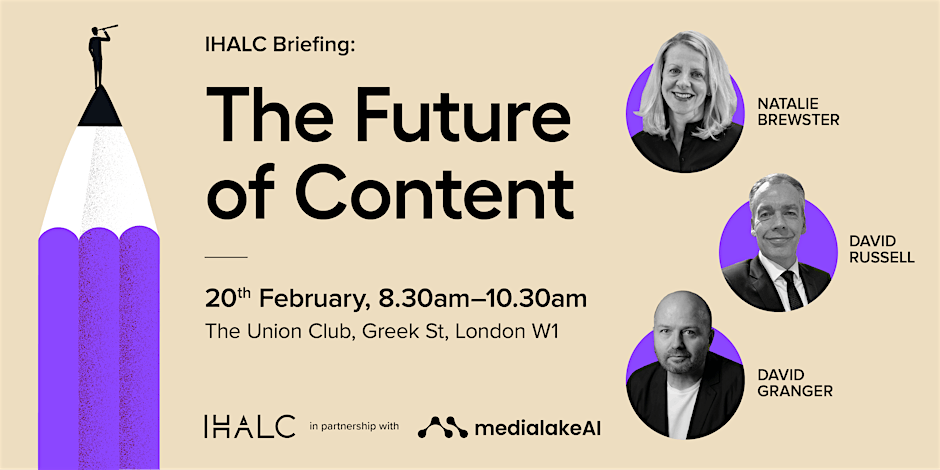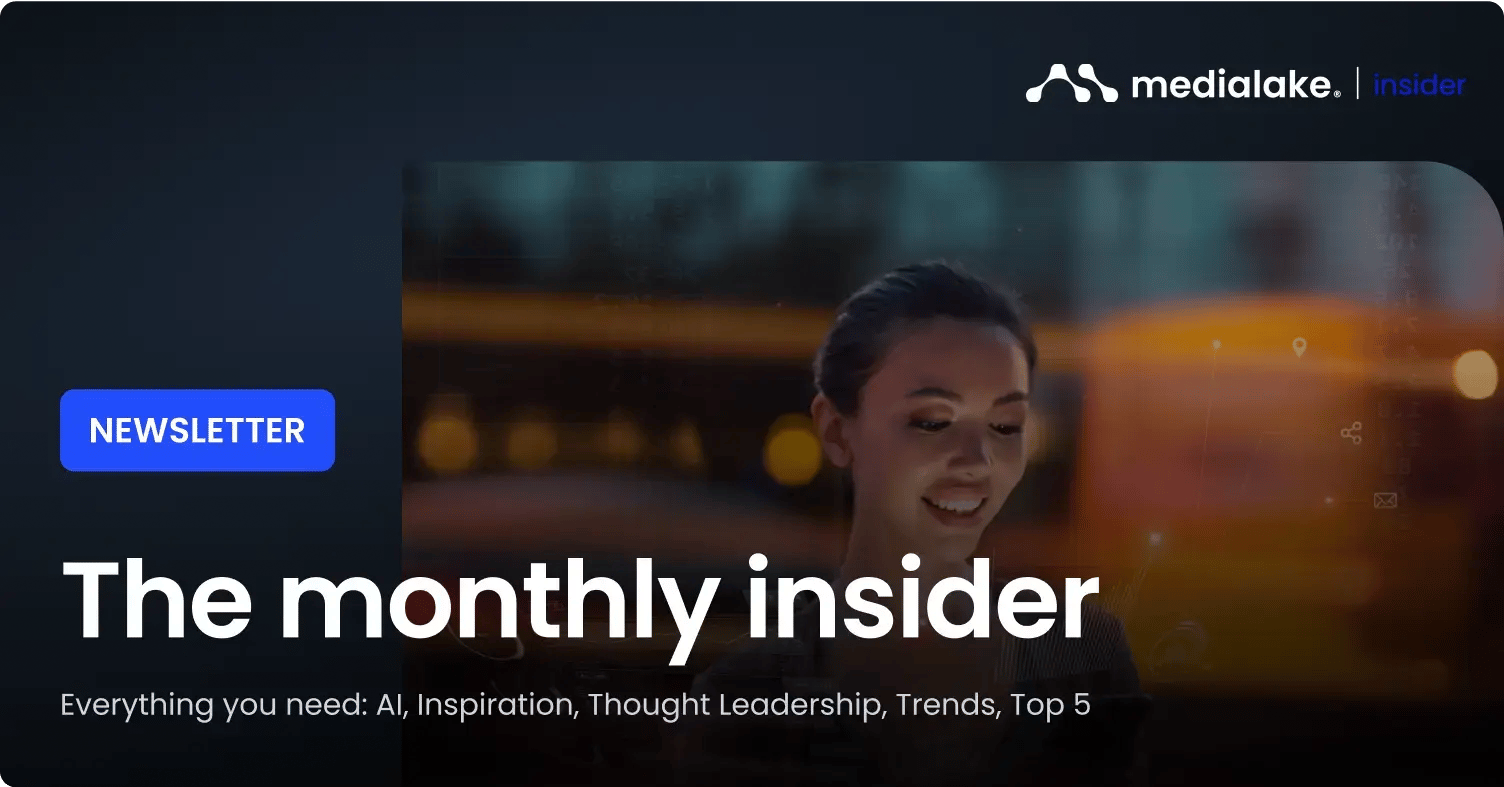The Creative Renaissance: Why In-House Agencies Hold the Key

In the ever-evolving landscape of advertising and marketing, Creative Operations within In-House Agencies (IHAs) face a unique set of challenges. Nils Leonard, Founder of Uncommon, recently highlighted a pivotal shift in the industry—a shift from harnessing creativity to solve real problems to focusing on selling time and services. This transformation raises critical questions about the role of creativity. It presents an extraordinary opportunity for Creative Ops teams to leverage AI technology to streamline operations, automate mundane tasks, foster innovation, and unlock the full potential of their creative endeavors.
The Data Dilemma: Content Creation and Wastage
Before delving into the opportunity AI offers to Creative Ops, it’s crucial to understand the scale of the content challenge in 2024. Each year, a vast amount of content is created, and shockingly, a significant portion of it goes to waste. Recent industry data indicates that, on average, 70% of the content produced by brands remains unused or underutilized. This inefficiency places a substantial burden on Creative Ops teams and hampers their ability to focus on strategic and creative endeavors.
Navigating the Content Deluge
The pressure on creative teams to produce more content is unrelenting in 2024. Audiences demand a constant stream of fresh and engaging material, creating significant challenges.
Investment in content to fuel growth has skyrocketed, and content volume has doubled in just two years. However, budgets have often remained flat or declined. This disparity has created substantial challenges for creative teams, who are under constant pressure to do more with less.
As Brad Jakeman, President of Pepsi, aptly pointed out, “It was once sufficient for us to produce 4 pieces of content a year, spending 6-8 months on each. Now, 4 pieces have turned to 4,000; 8 months has changed to 8 days and the budgets have not gone up.”
Moreover, 90% of the world’s content was created in the last two years, further intensifying the demands on creatives. 75% are being asked to cut their budgets, 71% have insufficient budgets to fully execute their strategies, and 61% find it challenging to demonstrate financial impact consistently.
These challenges have resulted in three significant issues that cannot be ignored:
1. Skyrocketing brand compliance and control issues.
2. Rapid deterioration of content performance.
3. Unprecedented wastage of budget and people’s time.
Unlocking Global Content Potential
In today’s interconnected world, brands operate on a global scale, producing a vast amount of content across various markets. This global presence offers incredible opportunities but also presents significant challenges. How can a brand ensure that all the content it creates worldwide is accessible but also efficient and reusable? The answer lies in the transformative power of AI.
AI-driven Content Data Platforms are revolutionizing the way brands manage their content. By indexing every asset across every platform and market, brands can create a unified content repository that serves as a treasure trove of creative assets. This repository becomes a searchable, queryable, and auditable hub that empowers creative teams to access a comprehensive library of content.
From Reusability to Adaptability
One of the remarkable benefits of having a unified content repository powered by AI is the ability to transform reusability into adaptability. Brands can take the core concept of a successful campaign and tweak it for new initiatives without starting from scratch.
1. Global Content Standardization: AI helps ensure that content adheres to global brand standards, making it easy to repurpose across markets. This standardization reduces the need for time-consuming adjustments when reusing content.
2. Creative Ideation: AI-driven content analysis can suggest creative ideas based on historical performance data. Brands can explore variations of successful campaigns, adapting them to different regions or cultural contexts while maintaining the essence of the original concept. You can scan existing content and gauge whether it has the potential to be fit for purpose for other channels. Can it meet the criteria required to be effective in those channels, so you can adapt rather than reshoot?
3. Content Localization: AI can assist in localization efforts, ensuring that content is culturally relevant and linguistically accurate. This localization process becomes more efficient when brands reference and adapt existing assets.
Maximizing the Value of Content
The ability to adapt and repurpose content efficiently is invaluable for brands. It allows for cost-effective content creation, as brands can capitalize on existing assets instead of starting each campaign from scratch. It also ensures brand consistency and cohesiveness across markets, reinforcing brand identity and recognition.
Creative Operations within In-House Agencies are poised at the forefront of leveraging technology, particularly AI-driven Content Data Platforms, to streamline operations, automate mundane tasks, and unlock creativity. The synergy between technology and creativity will undoubtedly shape the creative renaissance, ensuring that Creative Ops roles remain at the forefront of the industry in 2024 and beyond.
Event: In-House Agencies and The Future of Content
AI presents an extraordinary opportunity for in-house agencies and Creative Ops teams to streamline operations, automate mundane tasks, foster innovation, and unlock the full potential of their creative endeavors.
The In-House Agency Leaders Club (IHALC) are hosting an in-person event in partnership with Medialake, where we’ll explore how in-house agencies can equip themselves with the tools and processes to make AI work for them, and not the other way round.
Facilitating the event, IHALC co-founder Patrick Burgoyne, we’ll be joined by a stellar panel, with Natalie Brewster, ex-Director of Global Creative Operations for the Body Shop, David Granger, formerly Head of Content at Cinch, PMI and Red Bull, and former Oliver Managing Director, David Russell.
The panel will discuss how AI can reshape content management, cutting waste, increasing efficiency and enabling brands to create unified content repositories that serve as treasure troves of asset intelligence.






